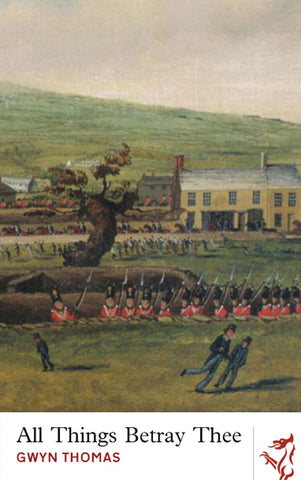“What we encounter here are reality and the tragic elements of
dream... a remarkable achievement.” The New York Times
With passion, humour and remarkable insight Gwyn Thomas captures the world of South Wales in the 1830s during the turbulent years of the Merthyr and Newport Uprisings. As the newly-built foundries enter their first decline, a travelling harpist from the rural north arrives in one of the new towns to find his friends caught in a fiercely-fought industrial dispute, a dispute which quickly spirals out of control.
A powerful and sweeping novel by one of Wales’s great literary figures, All Things Betray Thee, tells the epic story of a people, their joys and victories, but also their sorrows and defeats.
About the author:
Gwyn Thomas was born into a large and boisterous family in Porth, in the Rhondda Valley, in 1913. After a scholarship to Porth County School he went to St Edmund Hall, Oxford, where he read Spanish. Mass unemployment and widespread poverty in South Wales deepened his radicalism. After working for the Workers’ Educational Association he became a teacher, first in Cardigan and from 1942 in Barry. In 1962 he left teaching and concentrated on writing and broadcasting. His many published works of fiction include His other work includes The Alone to the Alone (1947); The Dark Philosophers (1946), The World Cannot Hear You (1951), and Now Lead Us Home(1952). He also wrote several collections of short stories, six stage plays and the autobiography A Few Selected Exits (1968). He died in 1981.

